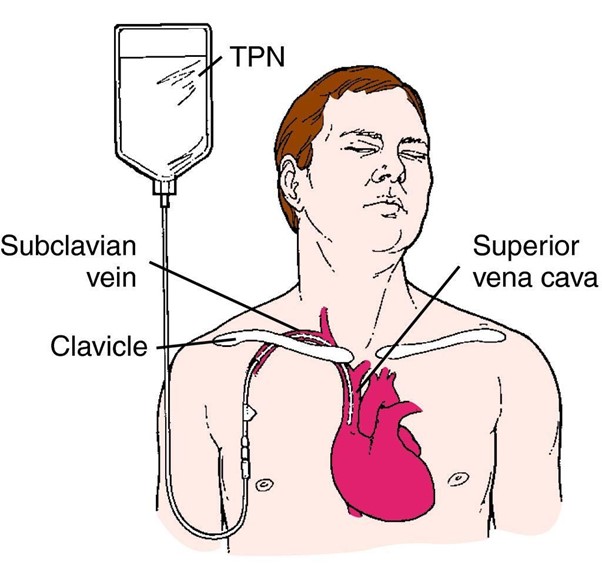The nurse is developing a food safety educational class for a group of parents. Which type of food is most likely to pose a threat of food poisoning after being stored in a refrigerator at 40°F (4.4°C) or below for more than two days?
Opened package of hot dogs.
Packaged of uncooked lamb chops.
Opened package of deli sliced meats.
Ground-up hamburger raw meat.
The Correct Answer is C
Choice A
Opened package of hot dogs is not correct. Hot dogs are processed and often contain preservatives that help extend their shelf life. However, it's still important to follow proper storage guidelines to ensure their safety.
Choice B
Packaged of uncooked lamb chops is not correct. Uncooked meats are generally safe if stored properly. The main concern arises when cooking and handling them, as raw meats can potentially cross-contaminate other foods if proper sanitation measures are not followed.
Choice C
Opened package of deli sliced meat is correct. Among the options provided, an opened package of deli sliced meats (option C) is most likely to pose a threat of food poisoning after being stored in a refrigerator at 40°F (4.4°C) or below for more than two days.
Deli sliced meats are considered a high-risk food for bacterial growth and foodborne illnesses. When meats are sliced and exposed to air, they have a larger surface area, making them more susceptible to bacterial contamination. While the refrigerator temperature of 40°F (4.4°C) helps slow down bacterial growth, it doesn't completely prevent it, especially if the food has been stored for an extended period of time.
Choice D
Ground-up hamburger raw meat is not correct. Similar to uncooked lamb chops, raw ground meat is generally safe when stored properly and handled with care. However, ground meats do have a larger surface area that can allow bacteria to grow more easily, which is why safe cooking practices are important.
Nursing Test Bank
Naxlex Comprehensive Predictor Exams
Related Questions
Correct Answer is C
Explanation
Choice A
Coffee is incorrect. Coffee can inhibit iron absorption and is not a good choice for increasing iron intake.
Choice B
Hot tea is incorrect. Similar to coffee, some compounds in tea can interfere with iron absorption, making it less optimal for increasing iron intake.
Choice C
Orange juice is correct. Orange juice is a great choice as it is high in vitamin C, which can enhance the absorption of iron from plant-based sources like oatmeal. The vitamin C in orange juice helps convert non-heme iron into a form that is more easily absorbed by the body.
Choice D
Apple juice is incorrect. While apple juice is a source of fluids, it doesn't provide the same level of vitamin C as orange juice, which is important for enhancing iron absorption.

Correct Answer is ["A","B","C","E"]
Explanation
Choice A
Generalized nonpitting edema is correct. Nonpitting edema could indicate fluid retention, and it's important to assess for signs of fluid overload, electrolyte imbalances, or underlying cardiac issues.
Choice B
Hypoactive bowel sounds in all 4 quadrants is correct. Hypoactive bowel sounds could suggest gastrointestinal motility issues, which could be a sign of gastrointestinal complications related to TPN.
Choice C
Redness at intravenous site is correct. Redness at the intravenous site could be indicative of infection, infiltration, or irritation. It's important to assess for signs of infection and ensure proper IV site care.
Choice D
Urinary output greater than 30 ml per hour is incorrect. While increased urinary output could indicate adequate hydration, it's not typically a concerning finding unless there are other signs of fluid imbalance. Top of Form
Choice E
Frequent productive cough is correct. A frequent productive cough could indicate respiratory issues, including aspiration pneumonia, which can be a complication of TPN.

Whether you are a student looking to ace your exams or a practicing nurse seeking to enhance your expertise , our nursing education contents will empower you with the confidence and competence to make a difference in the lives of patients and become a respected leader in the healthcare field.
Visit Naxlex, invest in your future and unlock endless possibilities with our unparalleled nursing education contents today
Report Wrong Answer on the Current Question
Do you disagree with the answer? If yes, what is your expected answer? Explain.
Kindly be descriptive with the issue you are facing.
